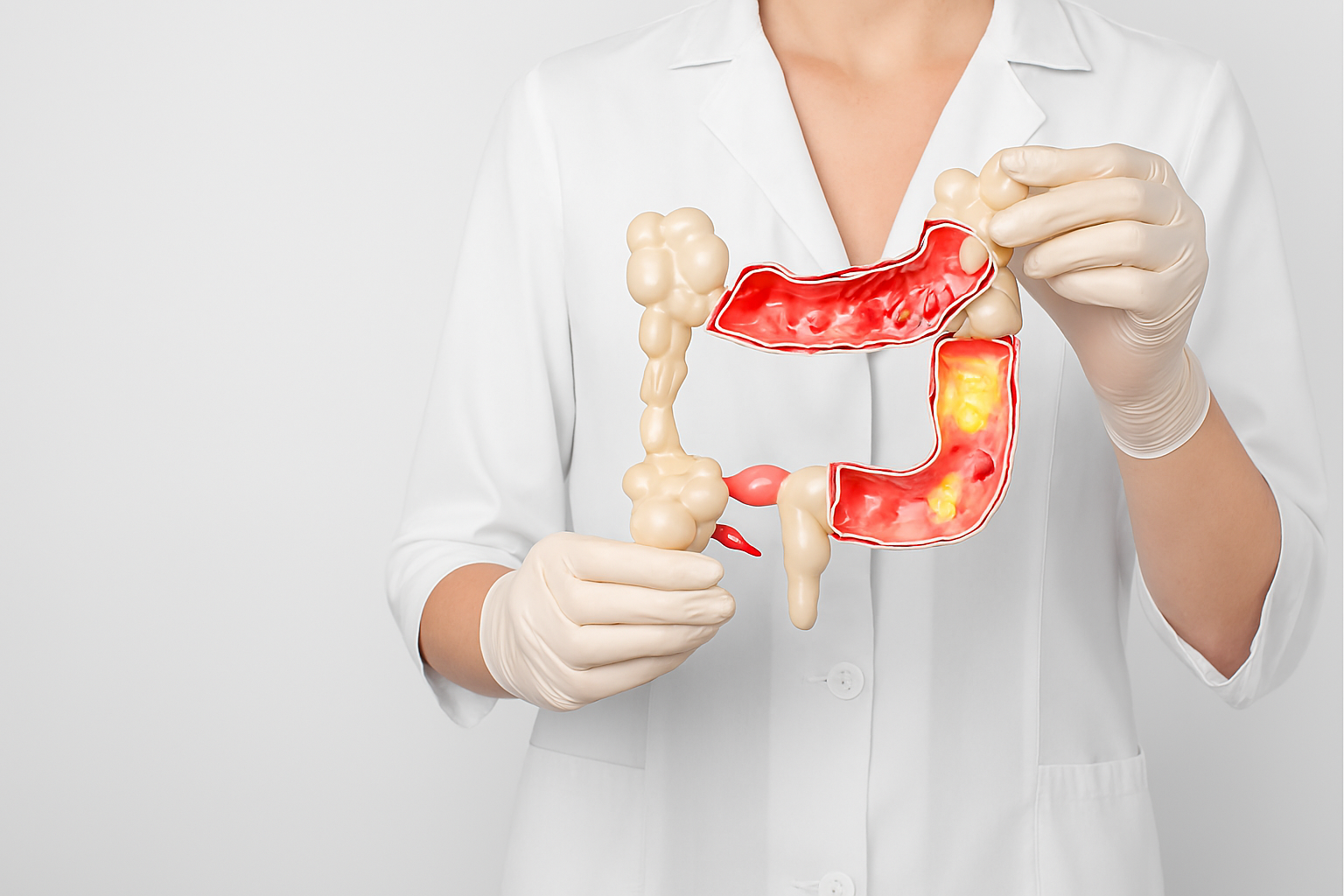
Rectal bleeding can be a concerning symptom, but understanding its potential causes and when to seek medical attention is crucial. At Vista Speciality Clinic, we believe in empowering our patients with knowledge. This FAQ is designed to answer your most common questions about rectal bleeding. For a personalized consultation, book an appointment with our expert Gastroenterologist in Bangalore today.Commonly Asked Questions about Rectal Bleeding
Rectal bleeding refers to the passage of blood from the anus or rectum, which can be seen on toilet paper, in the toilet bowl, or mixed with stool. While it can be alarming, a very common cause is Hemorrhoids, which are swollen blood vessels in the rectum or anus. Another frequent cause is an Anal Fissure, a small tear in the anal lining often caused by hard stools. At Vista Speciality Clinic, our Gastroenterologist in Bangalore can accurately diagnose the source of your bleeding.
While the most common causes are benign conditions like Hemorrhoids and Anal Fissures, it is essential not to ignore rectal bleeding. It can also be a symptom of more serious conditions, including Colorectal Polyps, which can be precancerous, and even Colorectal Cancer. Therefore, any instance of rectal bleeding warrants a thorough evaluation by a qualified Gastroenterologist. Book an appointment with a leading Gastroenterologist near Jayanagar for a comprehensive check-up at Vista Speciality Clinic.
Diverticulosis is a condition where small pouches or sacs, called diverticula, form in the wall of the colon. While often asymptomatic, a diverticulum can sometimes bleed, leading to painless rectal bleeding. This bleeding can be significant and requires immediate medical attention. Our team at Vista Speciality Clinic has extensive experience in diagnosing and managing conditions like Diverticulosis. For expert care from the best Gastroenterologist in Bangalore, visit us today.
The choice of diagnostic test depends on the suspected cause and the location of the bleeding. A common first step is an Anoscopy or Proctoscopy, which allows for a close examination of the anal canal and rectum. However, to evaluate the entire colon, a Colonoscopy is often recommended. This procedure allows the doctor to visualize the entire large intestine and is crucial for detecting Colorectal Polyps or Colorectal Cancer. Our advanced facility at Vista Speciality Clinic is equipped with state-of-the-art diagnostic tools.
A Colonoscopy is a highly effective procedure for investigating the source of rectal bleeding, especially when the cause is not an obvious external issue like a Hemorrhoid. It is crucial for screening for and removing precancerous Colorectal Polyps. Your doctor may recommend a Colonoscopy based on factors like your age, medical history, and the nature of the bleeding. To discuss whether a Colonoscopy is right for you, consult with our expert Gastroenterologist near JP Nagar at Vista Speciality Clinic.
Simple Dietary Changes can often prevent and manage conditions like Hemorrhoids and Anal Fissures, which are common causes of bleeding. Increasing your fiber and water intake helps to soften stools, making them easier to pass and reducing the strain that can lead to bleeding. For personalized advice on Dietary Changes, speak with a specialist at Vista Speciality Clinic. Click here to book an appointment.
Hemorrhoid Treatment options range from simple lifestyle modifications to more advanced procedures. For mild cases, increasing fiber and fluid intake, and using over-the-counter creams can be effective. More persistent or severe cases may require medical procedures such as rubber band ligation or surgery. The best course of action depends on the type and severity of your Hemorrhoids. Our Gastroenterologist at Vista Speciality Clinic, a leading Gastroenterologist at Banashankari, can provide a tailored treatment plan.
A Polypectomy is the procedure of removing Colorectal Polyps, typically performed during a Colonoscopy. It is a crucial preventive measure against Colorectal Cancer. Since many polyps do not cause symptoms, a Colonoscopy with a Polypectomy is the gold standard for early detection and prevention. The experienced team at Vista Speciality Clinic performs these procedures with utmost care to ensure your well-being.
Rectal bleeding can be a key symptom of inflammatory conditions such as ulcerative colitis or Crohns disease, which fall under the umbrella of Inflammatory Bowel Disease (IBD). These are chronic conditions that require long-term management. Our expert Gastroenterologist in Bangalore can provide a precise diagnosis and develop a comprehensive treatment plan to manage the symptoms and inflammation. To get the best care for IBD, schedule an appointment with Vista Speciality Clinic. Click here to book.
If you are experiencing rectal bleeding or any other digestive symptoms, it is crucial to consult a specialist. At Vista Speciality Clinic, we have a team of highly experienced Gastroenterologists dedicated to providing exceptional care. Whether you are looking for a Gastroenterologist near Jayanagar, a Gastroenterologist near JP Nagar, or a Gastroenterologist at Banashankari, Vista Speciality Clinic is conveniently located to serve your needs. We are committed to accurate diagnosis and effective treatment for all digestive health issues.